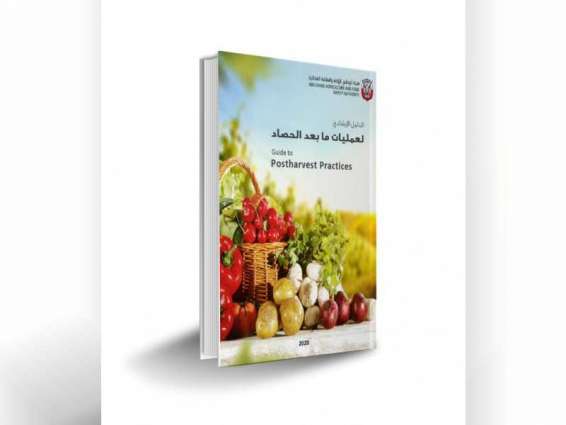ABU DHABI, (Pakistan Point News - 27th Jun, 2020) The Abu Dhabi Agriculture and Food Safety Authority, ADAFSA, has issued 36 post-harvest practice guides covering 41 crops, including 21 guides for vegetables and 15 guides for fruits.
Due to the similarity of post-harvest practices for some crops that belong to the same family, the guides of these crops were combined.
The ADAFSA was keen to gather these guides in one book issued under the name "Guide to Postharvest Practices", to be a reference for good post-harvest practices, and a guide for farmers to enables them to maintain post-harvest quality and minimise crop losses and thereby increase farm revenues.
On the other hand, the guide would help traders and consumers to boost their confidence in the local product and enhance its competitiveness in the market.
In this regard, Saeed Al Bahri Salem Alameri, the Director-General of ADAFSA, affirmed that post-harvest operations have become one of the critical elements in agricultural economics and the food value chain. He added that implementing these good practices minimises crop losses by 20 percent to 50 percent, increases the shelf life of the produce throughout the supply chain, which results in increasing food availability, in addition to enhancing food security and improving the farm owners’ income.
"To produce high-quality agricultural products, the Authority believes that crop should be subject to an integrated process of crop management, which includes choosing the best varieties, proper sowing dates, efficient irrigating systems, right fertilising programmes, crop pruning and fruit thinning, integrated controlling of pests and diseases, implementing the best harvesting and post-harvest practices, and transporting the yield properly to the market," Alameri said in the guide’s introduction.
Aligning with the interest of the leadership and the Abu Dhabi Government’s objectives in addressing public health and food security issues as strategic priorities, Alameri noted that these guides are culminating the ADAFSA’s efforts to develop and upgrade the agricultural sector in the Emirate of Abu Dhabi. In addition to securing food for citizens and residents in a substantial manner, the Authority is keen on developing the agricultural sector and increasing its contribution to Abu Dhabi’s GDP.
ADAFSA’s employees are working diligently to educate and train farm owners and workers on applying standards listed in the guide and implementing the good practices to maintain the quality of the product.
The guide consists of 21 guides for vegetable crops, such as eggplant, okra, broccoli, onion, sweet potato, potato, garlic, carrot, cucumber, sweet corn, cauliflower, tomato, bean, radish, chilli and bell pepper, squash, cabbages and leafy vegetables. Meanwhile, the other 15 guides are for fruits, such as pineapple, papaya, orange, watermelon, fig, guava, melon, strawberry, lemon, mango and bush berries (Blackberry, blueberry, cranberry, and raspberry).
Each guide is divided into two sections, the first one contains standards to maintain post-harvest quality by helping farmers to harvest ripened fruits that are free of pests, cracks, defects or any damage makes them unsuitable for consumption. The second section provides general guidelines on the cold chain, starting from protecting the yield from heat or moisture to precooling, storing, packing and packaging and transporting processes.




